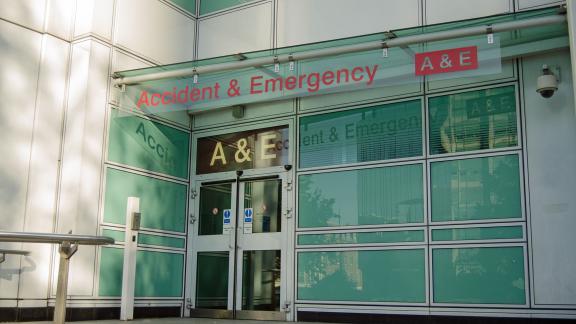NHS has reached tipping point, warn healthcare leaders

The pressure on the NHS is now at unsustainable levels and patient safety and care are being put at risk by staff shortages, according to a new poll of NHS leaders by the NHS Confederation.
NHS leaders in England warn that we have reached a tipping point, with nearly nine in 10 (88%) saying the demands on their organisation are unsustainable. Almost the same number (87%) also say that a lack of staffing in the NHS as a whole is putting patient safety and care at risk.
The survey of leaders across hospitals, ambulance services, mental health providers, community services, primary care and integrated care systems is published ahead of the monthly performance figures for the NHS in England. These are due to be published at 9.30am on Thursday 11 November.
The greatest areas of concern for NHS leaders are primary care and urgent and emergency care. This comes at a time of record levels of demand on A&E departments, increasing bed occupancy rates, more patients stuck in hospital due to a lack of domiciliary or care home places available for them, and large increases in ambulance handover delays. This is on top of mounting pressure on GPs and other parts of primary care, as well as mental health and community services.
When asked what one measure would help reduce pressure on the NHS as we head into winter, the most endorsed recommendation from NHS leaders is for the Government to provide extra support for social care. They recommend this be targeted at ensuring effective discharge arrangements are in place so that people can live more independently in care homes or in their own homes. This comes as reports that one in five beds in some hospitals are currently being occupied by patients who are medically fit to be discharged, but for whom there is no care package available so that they can leave hospital. Community services are also under enormous pressure supporting people at home and in care homes that lack the social care staff needed.
NHS leaders also want to see much clearer government messaging to the public on how difficult this winter is going to be.
Despite the severe pressures the NHS is under, local services have managed to treat significant numbers of patients, while managing the ongoing threat from Covid-19. According to the latest figures, 1.1 million procedures were carried out in August as the NHS starts to make inroads into the elective care backlog. Also 25.5 million appointments were carried out in primary care in August, including 14 million face to face consultations.
Commenting on the findings, Matthew Taylor, chief executive of the NHS Confederation said:
“The health and social care secretary says the NHS is not under unsustainable pressure, but NHS leaders are clear that we have reached a tipping point. Front line providers across all parts of the NHS are under intolerable pressure and we know this is going to get worse over the winter unless we take action now.
“The government must take every step possible to prevent the NHS from plunging into crisis. The number one measure that Ministers could take now is to provide extra funding and support to social care services. This includes making more money available to increase the wages of care assistants to help fill staffing vacancies and to increase their fuel duty allowance so that more care staff are persuaded back into the sector.
“We welcomed the government’s recent extra investment in the NHS, but we cannot immediately buy our way out of this potential crisis due to the 90,000 plus vacancies we are carrying in the NHS. That means it would be better to allocate more immediate funding from the recent funding settlement to social care services as boosting the numbers of care staff will have much greater impact on reducing pressures on hospitals and other parts of the NHS.”
An ambulance leader said: “Our ability to respond to immediate life-threatening calls means some patients will die.”
A hospital trust chief executive in the South said: “Systems are at breaking point and risk is unacceptably high (for) some cohorts of patients be that in emergency, primary care, cancer or elective care (or elsewhere) but where is the honesty and openness about this?”
Another hospital director in the South added: “Needing to prioritise inpatient care at the expense of elective care is impacting on patient experience and safety.”



